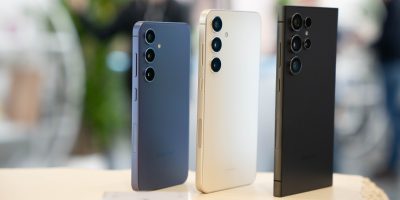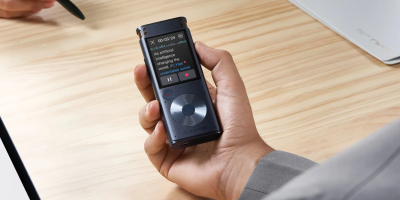Intel’s desperation to crack into the mobile market is quite clear from their latest comments. The world’s largest chipmaker (but with pretty much no presence in the mobile or tablet segment) has stated that other SOC vendors haven’t optimized Android for multi-core processors.
Apparently, Intel has conducted tests which have shown that in some cases, the second core on a dual core chip by another manufacturer has resulted in decreased performance. The issue, they say, is with the queueing and distribution of jobs between the different cores, which lies in the domain of the chip manufacturer and not the OS software engineers.
However, I find it difficult to take this news seriously. We’ve seen first hand the significant improvements in performance of the multi-core devices. Intel needs their singlec-ore Medfield chips to be taken seriously, which is exceptionally difficult in a time when the crowd wants quad core. They will make as much noise as they can for the any positive test result they find.
[The Inquirer via Talk Android]











BS. Intel should stay away from mobile products. no one needs them.
Crap. The competition the better.
Do you wanna keep staying in Roman times? Competition is always welcome in the market.
Competition only works when a product has wide use and you know-competitive. Intel in mobile is not. I doubt any of the other chipmakers give them a thought.
Apple felt the same way about Android when it started too, I bet.
That had to do with Apple’s arrogance. They had no competition really when they started, chipmakers on the other hand….
you misspelled arrogance, its a-p-p-l-e
I welcome Intel to the world of mobile products. I think Intel’s chips are great news for the tablet market especially. x86 computing opens up a lot of doors for tablets.
Currently, a tablet doesn’t do anything more than your phone with the exception of having a larger screen and a few USB ports. An x86 powered tablet has the potential to run Windows or Linux exactly as it runs on a desktop (not like Windows 8 for ARM which only runs programs written for the ARM version of it).
The first manufacturer to put out a modern tablet that can boot from a USB flash drive or optical disk and install whatever x86-based OS I want is the first one that gets my money earmarked for “tablets.”
There are a few core i5 x86 based tablets out there like the HP Slate for instance. They come preinstalled with windows 7.
was also going to mention the HP Slate. Also Motion Computing and ASUS also have nice tabs which you can install any x86 OS you like. Even better, they still contain active digitizers aswell as today’s capacitive digitizers.
ARM can run linux just fine. I had Debian running on my G1 as did several others. You can verify on forum.xda-developers.com
Of course ARM can run Linux just fine. Android runs a Linux kernel and uses an ARM processor, so if ARM couldn’t run Linux, there’d be a pretty big problem with Android, lol.
My point was that you could run the same x86 versions of Linux that you find on desktop platforms with all of the same packages. Even with Debian for ARM, there are many many packages that do not work properly.
I’m still getting used to seeing ‘Intel Inside’ when I boot up my phone, but I’m glad they’re in the mobile race!
I work in the cell phone industry and test all the phones before they come out….I call BS
Intel could have some amazing stuff for mobiles. Tech-wise Qualcomm is at 28nm fab with Snapdragon S4. NVIDIA, Samsung, etc are at 32nm.
It would be awesome to see a cutting-edge mobile processor on Inte’s new 22nm tri-gate fab.
I believe Clover Trail will have tri gate
The Medfield chips do have Hyperthreading, so technically, they’re multi-threaded. For just about any normal smartphone usage, it’ll behave exactly like a dual-core chip. With the added benefits of x86, the Z2460 should outperform a dual-core S4, clock for clock.
What bothers me about the Z2460, though, is Intel’s choice for graphics processing. The SGX540 is horribly underpowered by today’s standards. Sure, at it’s 400MHz clock speed, it has enough oomph to run a 1080p display, but it won’t be able to run any of those fancy new games we just saw at E3.
Now, the Z2580 has some potential. It’s dual-core with Hyperthreading, so it’s essentially a quad-core chip. The SGX544MP2 is easily as powerful as the Adreno 225, and will likely be able to keep up with the 325 as well. I doubt Intel will be able to get it out in time for it to have any sort of competitive edge, though.
It is a fact that Intel has always been far behind when it comes to graphics power.
What are the “added benefits of x86”? S4 and Cortex A15 are more advanced chips than Intel’s Atom. S4 just hasn’t had the same clock frequency yet for a single core. And there’s no way Intel’s statement is true.
ARM is great in terms of power efficiency, thanks to its reduced instruction set, but up against x86, it lacks in performance.
x86 is a more complete instruction set, which will let a CPU do more in a single cycle for certain tasks than an ARM chip could.
I can’t name a task off of the top of my head that ARM lacks, but take this as an example:
Pretend ARM does not have a specific instruction for the modulo (‘%’) operator, but x86 does.
An x86 chip could do 5 % 4 = 1 in a single step, or one cycle.
The ARM chip would have to translate 5 % 4 to 5 – (int(5 / 4)*4), which would take a cycle for 5 / 4, plus another cycle to multiply that result by 4, and another cycle to subtract it from 5.
In the end, the x86 chip can perform the modulo command 3 times faster than the ARM chip at the same clock rate.
Now I’d imagine the ARM instruction set does have modulo in it, but this is just a simplified example.
i have a single core xperia pro. while i see improvements over time in processor power, i dont look for dual ou quad cores… i see more cores in cell phones as a unnecessary geek battle…
things like screen real state, battery, ram, keyboard are much more important than processor cores.
so, if intel comes with a more efficient processor, i will be glad to have it.
They are probably making all that noise because they can’t release a more efficient processor. Most manufacturers probably would love an efficient single-core CPU for medium-class devices
pardon my French but I have had the windows HTC titan 2 to play with for awhile now and its 1.5 GHz SINGLE core processor is actually pretty beastly, granted the windows os is pretty simple it still moves flawlessly!
Windows Phone is more efficient. It was also written to work with limited hardware specs. MS also dictates what hardware it can be used with. That is why it is so fluid and smooth even on lower end hardware like the HTC Trophy. Not a bad idea by MS. Android phone makers just need to spend more time optimizing the OS on their hardware but won’t as they are in a hurry to dump as many phones out the door as possible to a hungry consumer market which does not take the time to ask for better.
Id not count Intel out. You can see these same fanboy style arguments back when AMD held the performance crown in the PC CPU market… Now, a decade later… Intel lays the smack down on them performance wise. Intel is a patient company and will eventually put out a top tier product in the mobile market.
Good luck. x86 by its very nature is very inefficient compared with ARM. At the very least, Intel has their work cut out for them.
As far as multiple cores go, the whole point is that more cores can offer performance improvements as well as efficiency boosts. Its good that multicore processors are becomming standard in mobile devices, as that will benefit efficiency and performance in the long run. While individual applications may not be properly optimized for multiple cores (basically meaning most apps don’t use more than one thread for their operations), the overall system is, and more cores does allow for better and more efficient multitasking.
but doesn’t dual core improve things like battery and UI smoothness. who cares if its less efficient if it works better and you are getting it for the same price?
They need to step on it :D I would like to see a chip maker giant to join the race. They should try to fit a i7 processor into a phone XD that would be amazing haha. I know it’s not going to happen but I can dream right :P hehe
With an i7 on a phone, I would worry about battery life and overheating.
Good joke Intel.
Embarrassing for Intel to be bashing their competition in a way that’s so patently untrue. Obviously this was not what he intended to say. There will probably be a retraction now that so much is made of it.
Maybe he meant to say “we have some amazing scheduler technology, but we don’t want to share it”. That would make sense.
did you just say “patently”? my lawyers will be in touch.
sincerely, Apple.
I think Intel’s problem is that they have built for the PC/Server world for so long that scaling design work back down for a mobile platform is like speaking Chinese in Greece. Think about the products they have offered over the past 15 years. Their smallest footprint for a full processor would barely fit in the largest of phones. Much less taking into account for heat. I’m glad their stepping up and starting to make a truly ultra portable product, but I say it will still be 2 or 3 years before they have something relevant.
Personally, I’d like to see some AMD Fusion based Android devices. AMD has already done a great job prepping the open source Radeon HD drivers (which work great with Android x86), and they’ve already got nice dual-core support as well.
Since they are the only chip maker in the mobile market that only has a single core processor in their line-up, they would say that, wouldn’t they? And of course whenever they will get a dual core ready for the same power draw (late next year?) they will market it as the best thing ever.
Give me a break Intel. You’re good at talking a big game, and you’ve been doing it for years with mobile, but how about you actually show us something for once?
now get Diablo 3 running on it.
everyone in this thread and the author does not understand that Intel single core chips are comparable to dual and quad core ARM chips
http://www.anandtech.com/show/5770/lava-xolo-x900-review-the-first-intel-medfield-phone/5
maybe im missing something, but from what i see, the chip is not nearly as good as the S4
i said comparable not more powerful.
understood
single cores will never be as efficient as multicore processors
That is just fundamentally false. They are only more efficient if you can find an efficient way to split tasks, process them and re combine the results more efficiently than just ramming them through a single thread. You’d be surprised how often that’s NOT the case, especially in the 64 bit and mobile worlds.
Not even comparable. Doing some single threaded things yes but any multi threaded operations that require multiple cores the ARM camp smacks the Atom down. Intel is doing what it can to try and grab some of the market and if it means lie and spread a little FUD so be it. Ever wonder why the Intel based phone released w/ 2.3? Simple answer is that 2.3 performs best on high end single core chips and multi-core ARM chips don’t show a real advantage. Put ICS on the Intel phone and a multi-core ARM and the difference will be night and day.
Just because Intel is 5 years behind doesn’t mean their SOC competetors aren’t optimized for android, if Intel is optimized how come their first to market phone with Orange is using Gingerbread? My SnapDragon feels pretty optimized to me and will become only better with software updates whether from the manufacturer or CM9.
looks like Intel is loosing and arm is winning,
arm is cheaper for efficient and now more powerful in the mobile sector.
The truth will come to light in the benchmarks — and battery life. Which reminds me, had I been thinking, I could have saved some money over the last few years by recycling my old PC’s as space heaters.
Software are not developed or optimized for hardware that doesn’t exist. Now we have quadcore, so soon we’ll have optimized software.
Actually, Intel is correct, to a point. Android 2.3 and previous are not designed to utilize multiple cores. 2.3 technically is the only older version to even support multi cores. However, honeycomb was the first android is to be optimized for dual core and ICS continues that. I assume jellybean will support quad core chips hence why it would real ease on the first Google quad core device.
Why do people keep saying this? Linux was multithreaded when it was called freax. Android 1.0 had quad-core support.
Having support for, and utilizing efficiently are 2 different things entirely.
do not cry Intel….we know that you are just crying because your bribing, lying and stealing is not effective here:
https://sites.google com/site/corpsins/
I am an android user all my smart phones have been, but seeing how optimized windows phone OS is on even the junkiest hardware makes me wonder if Intel is not partially correct in that Android could stand some tweaking and optimization. How many of you have your phone rooted and are running some kind of tweak like supercharger or even a custom rom that has been optimized?